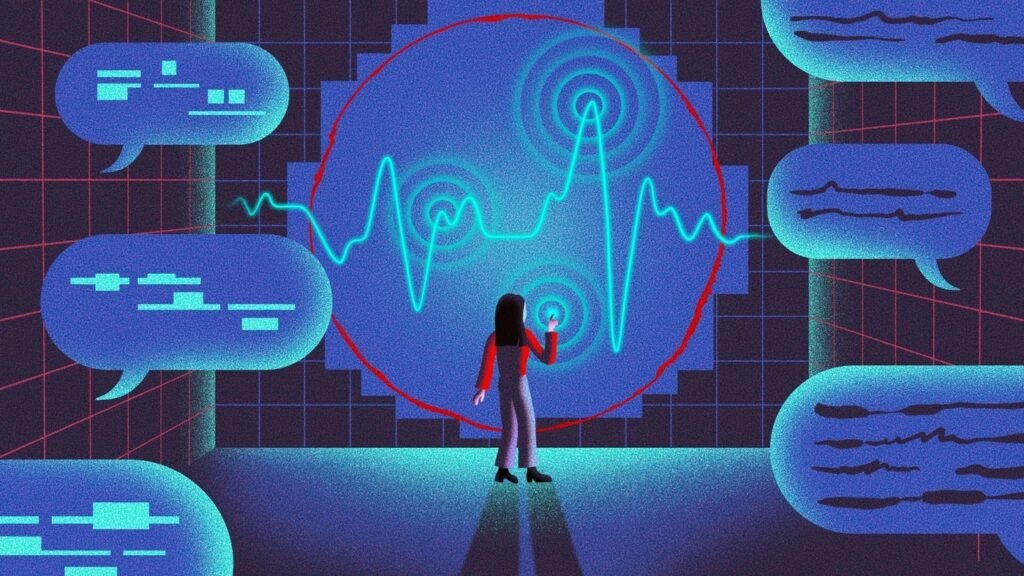Embracing Empathy: The Revolutionary Role of Emotion AI in Mental Health Care
Introduction:
In the ever-evolving landscape of healthcare, a groundbreaking innovation is reshaping the way we approach mental well-being – Emotion AI. Beyond diagnostics and traditional therapeutic methods, Emotion AI introduces a new dimension of empathy and understanding into mental health care. In this exploration, we delve into the transformative role of Emotion AI in mental health, exploring its applications, benefits, and the ethical considerations that accompany this innovative approach.
Understanding Emotion AI in Mental Health:
Mental health care has traditionally relied on subjective self-reporting and clinician observations. Emotion AI introduces a data-driven and objective layer to this field by leveraging advanced algorithms to analyze facial expressions, vocal tones, and physiological signals associated with emotions. This technology enables a more nuanced understanding of an individual’s emotional state, providing valuable insights for diagnosis, treatment, and ongoing support.
- Early Detection and Intervention: Emotion AI has the potential to revolutionize the early detection of mental health conditions. By analyzing subtle changes in facial expressions or voice patterns, the technology can flag potential signs of distress or emotional imbalance. Early intervention based on these insights can significantly improve outcomes and prevent the escalation of mental health challenges.
- Virtual Therapists and Emotional Support: The integration of Emotion AI in virtual therapists and emotional support systems is a game-changer. These AI-driven companions can actively listen, analyze, and respond to users’ emotions, offering real-time support and coping strategies. This approach extends mental health care beyond traditional therapy sessions, providing continuous assistance and emotional companionship.
- Personalized Treatment Plans: Emotion AI contributes to the development of personalized treatment plans tailored to individuals’ emotional needs. By continuously analyzing emotional data, the technology can adapt therapeutic interventions, medication plans, or counseling approaches, ensuring that treatment aligns with the evolving emotional landscape of each patient.
- Remote Monitoring and Teletherapy: Particularly relevant in the context of remote healthcare, Emotion AI enables the remote monitoring of patients’ emotional well-being. Teletherapy sessions can be enhanced with real-time emotional analysis, allowing mental health professionals to gauge and respond to patients’ emotional states, even from a distance.

Ethical Considerations:
While the potential benefits of Emotion AI in mental health care are vast, ethical considerations must be prioritized to ensure responsible and compassionate use:
- Privacy and Informed Consent: Collecting and analyzing emotional data necessitates a robust framework for privacy protection. Users must provide informed consent for the use of Emotion AI in their mental health care, understanding how their emotional data will be utilized and protected.
- Guarding Against Bias: Bias in Emotion AI algorithms could lead to misinterpretations and reinforce existing stereotypes. Developers must actively work to identify and eliminate biases to ensure fair and equitable treatment, especially considering the diverse nature of mental health experiences.
- Transparency in AI Decision-Making: The decisions made by Emotion AI algorithms should be transparent and explainable. Mental health professionals and patients alike should be able to understand how the technology arrives at specific conclusions about emotional states, fostering trust in the diagnostic and therapeutic process.
The Future of Mental Health Care:
As Emotion AI continues to evolve, the future of mental health care holds exciting possibilities. The integration of this technology with virtual reality (VR) therapy and augmented reality (AR) interventions could create immersive and personalized therapeutic experiences, enhancing the effectiveness of mental health interventions.
Conclusion:
Emotion AI in mental health care signifies a paradigm shift, ushering in a new era of empathetic and data-driven support for individuals facing mental health challenges. By embracing the potential of this innovative technology while prioritizing ethical considerations, mental health care providers can unlock novel approaches to diagnosis, intervention, and ongoing support. In doing so, we take a significant step towards a more compassionate and personalized mental health care landscape, where technology serves as a tool for understanding and healing the complexities of the human emotional experience.